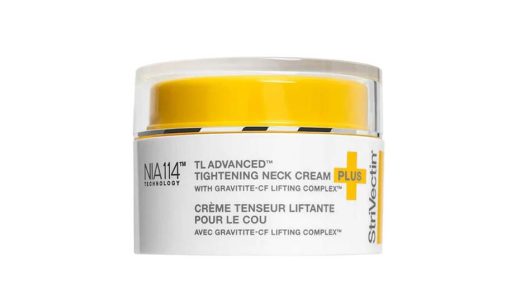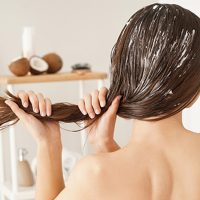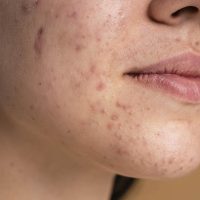When it comes to skincare, the nighttime routine is just as important, if not more, than your morning routine. While you sleep, your skin undergoes a natural repair process, and this is the perfect time to maximize the effectiveness of your skincare products. The right nighttime routine can make a noticeable difference in how your skin looks and feels. But how do you achieve the best results? Let’s break down the steps and tips for an optimal night skincare routine.
Unleash Your Adventure with Columbia Sportswear
– Where Style Meets Performance!
Elevate Your Outdoor Experience with Our Premium Gear – Explore, Conquer. and Look Good Doing It. Embrace the Elements in Columbia's Cutting-Edge Designs. Gear Up for Greatness, Unleash Your Inner Explorer!
Find your gear1. Understand the Role of Nighttime Skincare
Our skin is constantly exposed to environmental stressors throughout the day. Pollution, sun exposure, and even makeup can lead to skin damage. At night, your skin’s barrier function improves, and it becomes more receptive to active ingredients in skincare products. The skin’s ability to regenerate and repair itself is also heightened during the night, making this the perfect time to treat any underlying skin issues like wrinkles, pigmentation, or dehydration.
2. Cleanse Thoroughly
The first step in your nighttime routine is cleansing. After a long day, your skin collects dirt, oil, and makeup, which can clog pores and cause breakouts if not properly removed. Opt for a double cleanse method for a thorough clean. Start with an oil-based cleanser to break down makeup and sunscreen. Follow up with a gentle water-based cleanser to remove any remaining impurities.
Tip: Avoid harsh cleansers that strip your skin of its natural oils. Look for products that match your skin type, such as a creamy cleanser for dry skin or a foaming one for oily skin.
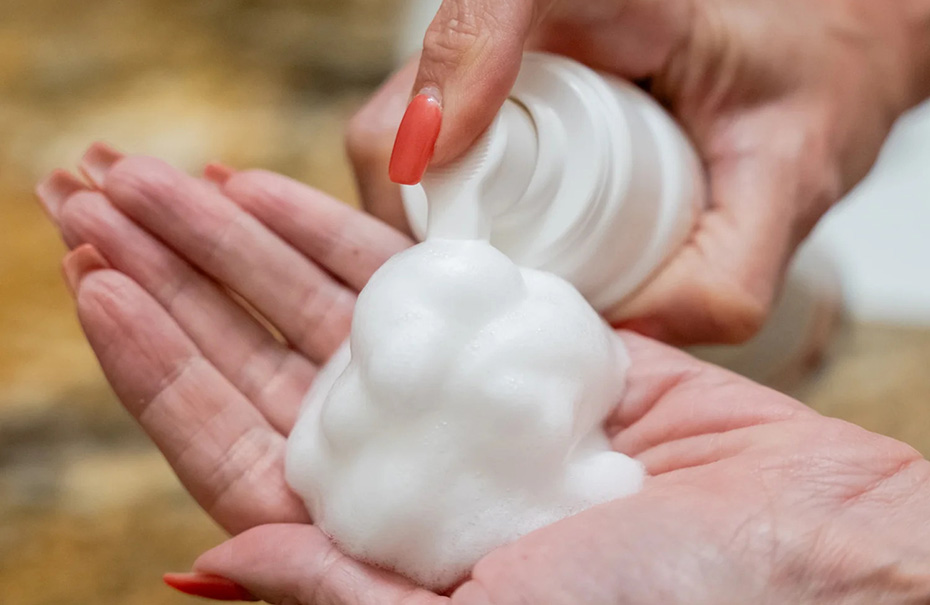
3. Exfoliate (2-3 Times a Week)
Exfoliation is an important part of the nighttime routine, but it’s not necessary every night. Exfoliating helps remove dead skin cells and allows your other skincare products to penetrate more effectively. You can choose between physical exfoliants (scrubs) or chemical exfoliants (AHAs, BHAs). Chemical exfoliants are often gentler on the skin and provide deeper exfoliation.
Tip: Exfoliate only 2-3 times a week to avoid irritation. If you have sensitive skin, opt for mild exfoliants and avoid physical scrubs, as they can be abrasive.
4. Apply Toner or Essence
After cleansing and exfoliating, it’s time to apply a toner or essence. While toners are often used to balance the skin’s pH, essences are lighter, more concentrated formulations that hydrate and prepare the skin for better absorption of subsequent products. Choose a toner that suits your skin type. For example, hydrating toners with hyaluronic acid work well for dry skin, while astringent toners with salicylic acid are great for oily or acne-prone skin.
Tip: Use a toner with soothing ingredients like aloe vera or chamomile if you have sensitive skin. For dehydrated skin, look for a toner that contains glycerin or rose water.
5. Use Serums for Targeted Treatment
Serums are highly concentrated formulas that target specific skin concerns such as acne, dark spots, wrinkles, and uneven skin tone. Choose serums based on your skin’s needs. For instance:
- Vitamin C Serums: Ideal for brightening the skin and reducing pigmentation.
- Hyaluronic Acid Serums: Perfect for boosting hydration and plumping the skin.
- Retinol Serums: Great for reducing fine lines, wrinkles, and improving skin texture.
Apply a few drops of serum to your face and neck, gently pressing it into your skin. Allow it to absorb fully before applying the next product.
Tip: If you’re using retinol, start with a lower concentration to avoid irritation. Gradually increase the strength over time as your skin builds tolerance.
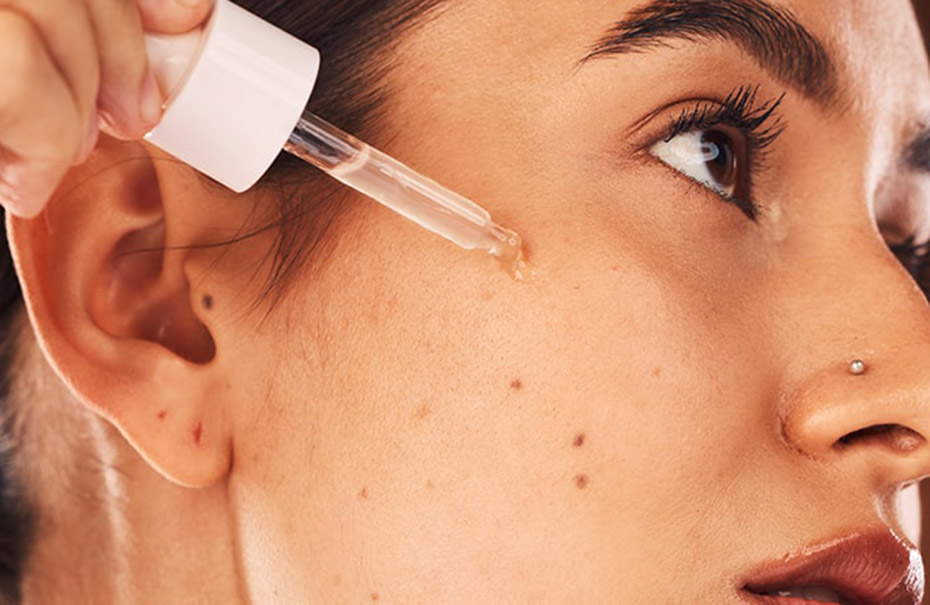
6. Moisturize
Moisturizing is crucial for maintaining the skin’s hydration levels overnight. Even if you have oily skin, do not skip this step. Choose a moisturizer that suits your skin type. For dry skin, opt for rich, nourishing creams. For oily skin, lightweight, oil-free gels or lotions are ideal.
The key is to lock in moisture, so your skin stays hydrated and supple throughout the night. Make sure to massage the moisturizer into your skin in upward motions to improve circulation and promote lymphatic drainage.
Tip: Look for moisturizers with ingredients like ceramides and peptides, which help repair the skin barrier and keep the skin looking firm and youthful.
7. Don’t Forget the Eye Cream
The skin around your eyes is thinner and more delicate than the rest of your face, making it more prone to fine lines and puffiness. An eye cream can target these concerns by providing hydration and nourishment to this sensitive area. Eye creams with caffeine help reduce puffiness, while those with peptides and retinol help with anti-aging.
Tip: Apply your eye cream using your ring finger, as it exerts the least amount of pressure, which is important for such delicate skin.
8. Overnight Masks and Treatments
Once your regular skincare products are applied, you might want to add an extra step for some intense care: overnight masks. These are designed to provide an extra layer of hydration or treatment while you sleep. For example, a hydrating mask with ingredients like honey or aloe vera can deeply moisturize dry skin, while a clay mask may help control excess oil.
Overnight masks are usually thicker than your usual moisturizers, so make sure to use them in place of your regular night cream, not in addition to it.
Tip: Use an overnight mask 1-2 times a week, depending on your skin’s needs. If you have sensitive skin, choose a calming mask that contains ingredients like chamomile or calendula.
9. Protect Your Skin From Overnight Damage
Lastly, ensure that your sleeping environment is conducive to healthy skin. Sleep on a clean pillowcase, preferably made of silk or satin, as it causes less friction and helps reduce the risk of wrinkles and hair breakage. Regularly change your pillowcases to avoid bacteria buildup.
Additionally, ensure you get enough restful sleep. Sleep is one of the most important factors for skin regeneration, so aim for 7-9 hours of quality sleep each night.
Tip: Try using a silk pillowcase if you suffer from acne or sensitive skin. It’s gentler on the skin and reduces the likelihood of breakouts caused by friction.
Nighttime skincare is your opportunity to repair, hydrate, and rejuvenate your skin. By choosing the right products and following a consistent routine, you can wake up with fresh, glowing skin every morning. Take the time to listen to your skin’s needs and use the right products for your skin type and concerns. With a bit of dedication, your nighttime skincare routine will soon become the highlight of your day—and your skin will thank you for it!


